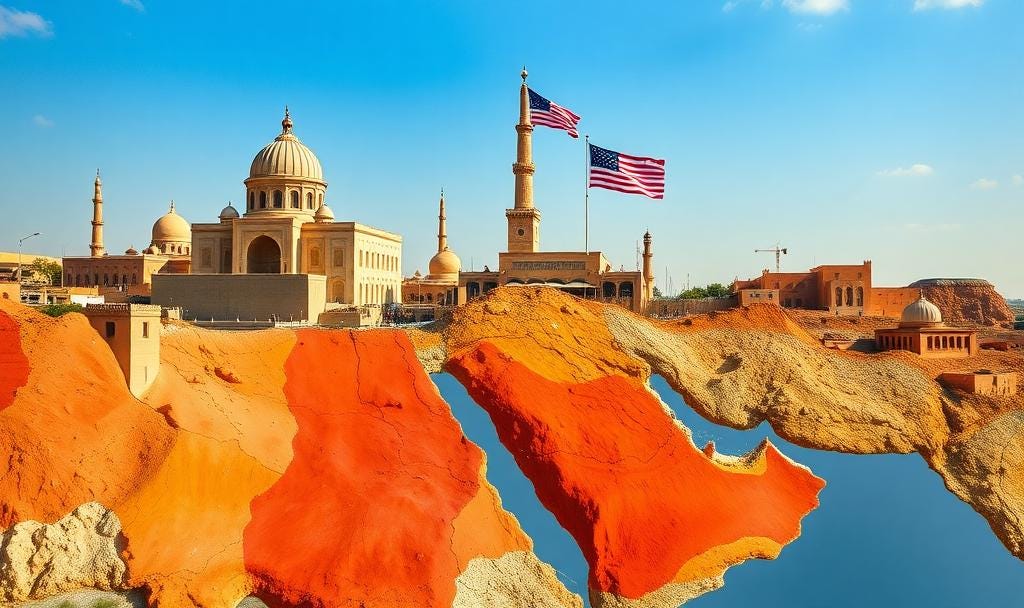US Foreign Policy 2000-2020 and 2020+
Redirecting the Energy of the Council on Foreign Relations
The current de facto gold revaluation taking place on global markets indicates a few transitory characteristics in the global order, including 1) regionalization, 2) broader reindustrialization and 3) increased competition for hard assets.
These factors underly a fundamentally more productive global economy that is also more fair, more equitable and more desirable for the everyday citizen. In the long term, this may or may not produce a re-ordering global conflict, presuming effective redistribution drives population growth which, as growth and profitability decline, often leads to population pressure that culminates in strongly externalized global conflicts (Germany 1914 & 39, France through the 19th century, Britain following the plague and so on). This is a longer run boundary to whatever the new global economic system generates, but that is a 40-50 year+ problem for another time.
Within the context of regionalization, reindustrialization and hard assets, central banks (primarily in Asia) have increased gold buying both officially and “unofficially” since 2008 as a response to macroeconomic concerns and the long-term unsustainability of US deficits. This is not necessarily a negative revaluation of the United States, since the United States still owns 4 times the amount of global financial assets that China does, and this ratio has actually increased in comparison to Japan, which was the next closest asset-holder in the wake of the 2008 financial crisis.
What the US has accumulated in the last 35 years as a matter of both net profitability, net asset leverage, net total government debt (at a relatively low rate) and stable gold and FX reserves has come at the cost of its population, which has seen relative declines in employment, median real productivity, effective disposable income, fertility rates and other measures of prosperity.
This is unsustainable politically, not simply because of the risk of socialism, but also stochastic violence in the avatar of Luigi Mangione, Shane Tamura, Tyler Robinson and certainly others to come. In a system like that in the United States, disorganized political violence is almost more of a threat than the organized form - the organized form often gets targeted and channeled into the political concensus, while disorganized not only persists in an unincorporated manner, but also resembles the ethos of individual liberty which the supporting (necessary) mythology of the country perpetuates.
Stochastic incidents like those that were common in the 1890s at the height of the Gilded Age (read: Progressive Era) or the various radical bombings of the 1970s makes elites unsafe at almost all places and all times, which hinders their ability to use their elite status in society (quite obviously). This implies a need to renegotiate the social contract that exists and redistribute what exists in the financial sector as assets, profit and limited real growth into a better proportion of asset appreciation, corporate profitability and increased wages, prosperity and standards of living for the middle and lower classes.
At the current time, dissatisfaction with the “social contract” isn’t something to be understood only as an American phenomenon. In Europe there is a crisis of low wages, limited demographic growth, unintegrated migrants. In China, youth unemployment is at an ever-increasing high, and in the face of “9-9-6” many young people are opting instead to “lie flat”. India, with the best demographics of any major global economic zone, has limited capital formation that drives 2.5 million young people (mostly men) to emigrate yearly. None of these environments hold promise for existing political elites or their future prospects, which means that the regime of globalization that has persisted since the end of the Cold War.
Pure globalization leads to supplier concentration, which along with supply chain “brittleness”, also favors workers local to the concentrated supplier while undermining the wages and negotiating power of workers in all other places. Even as workers in a concentrated supplier context perform well, they actually feel diminished both by global competition and by the fact that their own employment is so concentrated - they become aware of their own status as a captive labor force. As we see nationalism & nihilism pick up globally in both democratic and authoritarian contexts, we can understand that this is the “revolt of the governed”, which implies that there is a lot more status risk for local elites than what has been perceived in the last 30 years of the globalization regime.
Interestingly, in this context, is the transition in US foreign policy. The 2000s to 2020 was effectively an effort to maintain the security of the US consumer, through 9/11, through liquid energy markets, through air travel, through cybersecurity, through combatting “sleeper cells” and the FBI’s 6-week cycle. There’s the Wesley Clark 7 - the implicit effort to eliminate or substitute the regimes of Iraq, Syria, Lebanon, Libya, Somalia, Sudan and Iran - in time to solidify global preeminence before “the next superpower comes around”. And this is counterpointed by President Trump’s recent visit to the Middle East in which he promised reduced interventionism and greater economic integration as a “Dawn of a bright new day for the great people of the Middle East”.
The current transition in American Foreign Policy is thus not only an effort to sequester some of the more unsettled energies domestically, but also increase economic integration with the periphery which it has previously abused - it may be considered a “love/hate” relationship, but it offers more economic opportunity to those foreign audiences than would be available otherwise. America as a mercantilist power is still less mercantilist and more broadly liberal than any other Empire in history - look at the last 80 years - whilst alternatives in China and Russia still lack the domestic political openness (or at least sufficiently managed democracies) necessary to sustain a comparatively more attractive openness abroad.


